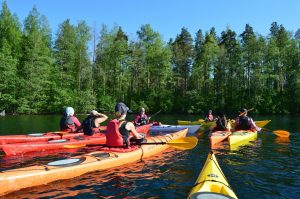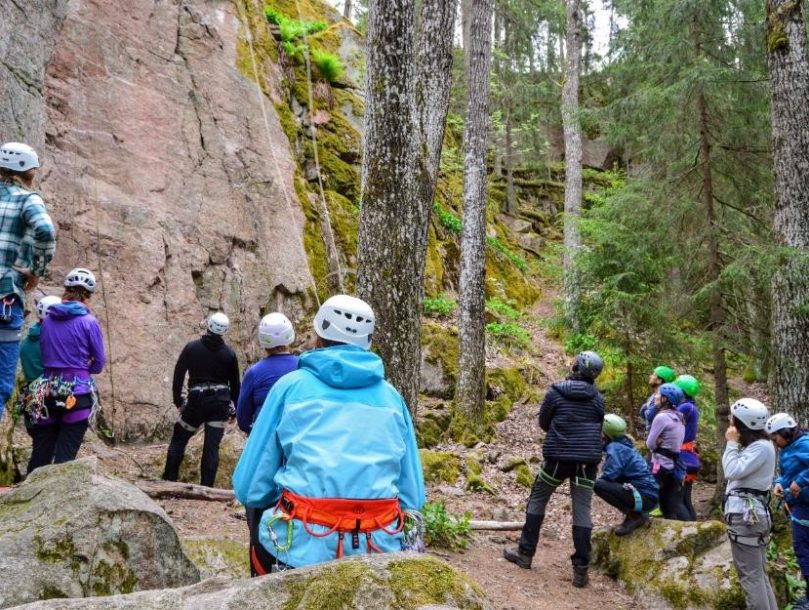Climbing teaches more than just making a knot or developing muscle strength. You must learn how to be determined, consistent, how to overcome fear, how to cope with failure, and how to be patient
Raina Kazanskaya
Adventure education was a completely new concept to me when I first encountered the program a year before I applied for it. It sounded like fun and it offered three skills that I was very much interested in developing – climbing, kayaking and trekking.
At first, it seemed like the whole program is about becoming an expert in the field, a guide or an instructor. However, I soon realized there is more to adventure education than I originally thought. Adventure education aims at much more than just a fun pastime. There are more serious goals to be achieved through the means of the fun pastime. Personal growth is one of them. To be more precise, independence, self-confidence, social skills, positive attitude, patience, leadership, resilience and nature connection are among the things which are facilitated by outdoor adventure experiences.

Exploring Ylläs fells on snowshoes (Photo: Raina Kazanskaya)
“The reason adventure is important is because it helps people to recognize what it feels like to be in a situation when you are not convinced you know what the outcome is going to be.” (Williams, 2019). Nature is crucial in our understanding of how we exist as human beings, how we connect to each other and to the environment around us.
Conventional education is boring; it mostly puts you to learn things out of context, out of the environment where things happen. Adventure education provides an exciting environment to learn through experiences. While learning seemingly useless skills, such as climbing, one might wonder why that is important – one might never need skills like that in life. Well, the same question goes for studying pretty much most of the middle school subjects: why study biology or chemistry? You might never use this information for anything, unless you want to become specialized. Climbing teaches more than just making a knot or developing muscle strength. You must learn how to be determined, consistent, how to overcome fear, how to cope with failure, and how to be patient. These qualities build character and are necessary to be successful in other aspects of life.
Climbing is mostly a social activity, although it can be, of course, exercised alone. You must trust people, you have to take responsibility for other people, and you learn to encourage each other. From my personal experience, climbing gives a great way to be happy about the success of your friends, as well as your own. This way you are getting stronger and better together, while at the same time not competing with each other, but only with yourself.

Introduction to kayaking (Photo: Kristiina Desroches)
Conventional education system could benefit greatly from elements of adventure added to the learning process. “We all have fear, you only grow through overcoming fear” (Mortlock, 2019)
References:
Mortlock, Colin & Williams, David. 2019. Experiential Learning: The power of adventure. Impact. Retrieved: 21.05.2020. https://www.youtube.com/watch?v=-uudq1s5D0I


